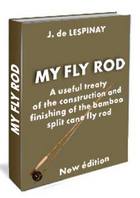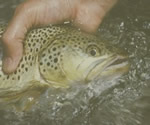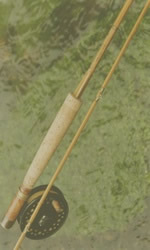Bamboo Fly Rod Building
THE HAND-GRASP
THE HAND GRASP AND REEL SEAT FOR FLY ROD
EXCERPTS CHAPTER VIII
Reinforcements under the hand-grasp.

8.2 Cementing the reinforcements.

8.3 The adjusted reinforcements.

8.4 The final result
One of the reinforcements will be on the axis of the rod.
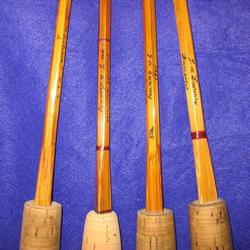
8.5 Reinforcements on rods
Topside or underside?
Topside is the solution I generally choose, as the reinforcement is prevalent against the backward flexing.
There is little more still to tell about the length of the hand-grasp, which will depend on your own hand size.
For a trout rod a good size would be 24 centimetres including the reel fittings.
You can shorten it, but it is rarely useful to lengthen it.
(...)
THE REEL SEAT
The wooden reel seats
Their warm satin like look always insured their success among those who admire beautiful equipment. By selecting the wood species it is possible to obtain a much customised rod. The weight addition is negligible even with screwed reel seats. Moreover this weight is situated in an area where it has little influence, provided the rod is well balanced.
Which Wood Species?
(…)
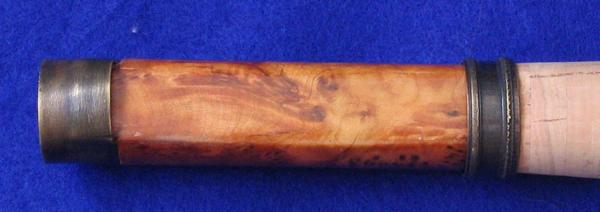

Caps and rings
I make my own caps and rings, using brass plumbing tubing caps and brass tubing for the rings. (photo 8.15).
First ream the inside then file down the outside to bring to the planned size. Once this is made, heat the piece to red and swage the inside on a convenient former made up of a die and stamp.
I enclose a clear sketch of a tool as used by Paul Agostini (sketch 8.16) and another as used by M. Cornille-Delaisse (sketch 8.17 and photos 8.18 & 8.19).
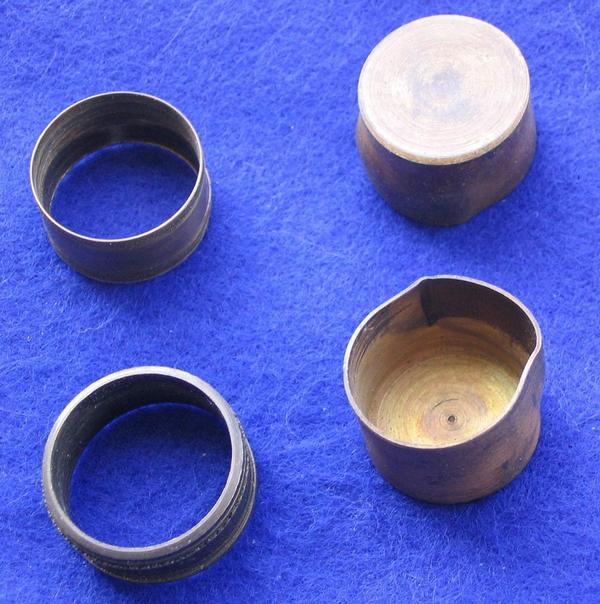
8.15 Caps and rings.
(...)
Bamboo fly rod building ©2010
